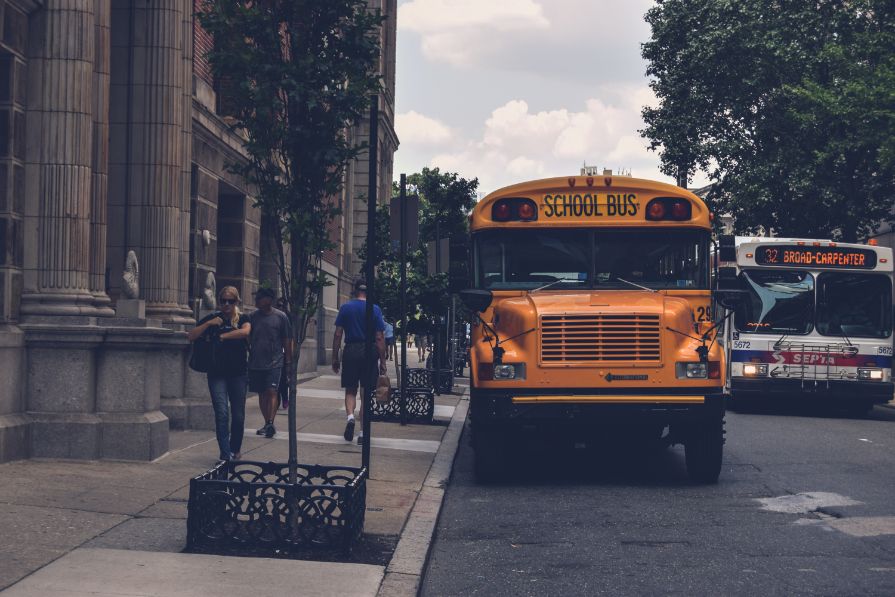
Why Does School Start So Early? Reasons
You must wonder why school starts so early when you are in high school. Here we provide some reasons for it.
High school students frequently experience sleep deprivation, which is linked to a number of health risks, including being overweight, abusing alcohol, tobacco, or other drugs, as well as subpar academic performance.
According to studies, most American students in middle school and high school don’t get the recommended amount of sleep. That’s 8 to 9 hours per night during the school year. Less than seven hours are typically received by most seniors in high school.
So why do classes begin so early? For more information, please continue reading.
Reasons For School Start So Early
The reasons why school start so early are listed below:
An Early School Start Time Can Cut Transportation Costs
School districts that choose to adopt an earlier start time can reduce their transportation costs by up to 30%. There are drivers who can run more than one route at a time in the morning and after school because the earlier start to the day allows for more flexibility when staggered start times throughout the district.
Students Spend Less Time On The Bus
The amount of time students spend stuck in traffic on their way to class is reduced when a school chooses an early start time. For children who reside in large urban districts, this means less time spent on the bus.
For some kids, this benefit shortens the school day by 30 minutes or more, giving them more time after school to engage in activities while still having enough time to complete their morning routine. Due to more direct routes, it may even result in a shorter ride.
It May Be Better For The Schedules Of Some Parents
There are some specific benefits that parents may experience with this shift if younger grades in the K–12 range have earlier start times. It could eliminate the need to pay for morning childcare as they get ready for work because a drop-off at the school could take place in its place.
The daycare will pick up the students after school so that parents can pick them up that evening after work. This benefit may help sell the idea of starting earlier when the family has a long commute.

School Districts Can Share Resources More Readily Throughout The Community
The necessity of sharing buses on all three educational levels, elementary, middle, and high school, is one of the biggest issues that school systems encounter every year. There is an age group that needs to have an earlier start time for their day when trying to find a solution that gets students to school while keeping these resources.
Since the grade schools start later, everyone can usually rely on the district’s resources to get to school on time.
An Earlier Start To The Day Allows For More Time In The Afternoon For Activities
When you look at the typical adult’s schedule, you will see that most people do not spend eight hours at work, return home, and then work four more hours at another job. You’ll be surprised at how busy kids are these days when you factor in their homework and team practices.
Sports schedules can occasionally be changed, though it can be difficult to do so in northern regions during the winter. Even at a younger age, children can still thrive with an earlier start.
It all depends on how receptive the neighborhood will be to collaborating with the district to offer support to everyone.
Most Schools In The United States Are Already Following This Schedule
93% of high schools and 83% of middle schools, according to data provided by the Centers for Disease Control and Prevention, already start before 8:30 am. Most schools in 42 different states report starting earlier than that, and some geographical areas report a 100% rate for early school start times.
Wyoming, Montana, and Hawaii all have 8:30 am bell times for the start of classes.
Cons Of Early School Start Times

- There are numerous health consequences that can happen with this decision
- Middle schoolers are thrown under the bus.
- Children who start school early must walk in the dark to the bus stop.
- Some parents’ work schedules might not be benefited from it.
- Kids will have more free time in the afternoon with an earlier start.
- This schedule clashes with rural communities’ schedules.
- Young teachers may also be impacted by an early start to the school day.
- It lowers the possibility of a metabolic disorder.
- Schools that start later in the morning have better test scores.
Adolescents And Sleep
Teenagers between the ages of 13 and 18 are advised to regularly sleep 8 to 10 hours per day for good health, according to the American Academy of Sleep MedicineCdc-pdfExternal. Adolescents who do not get enough sleep are more likely to
- Be overweight.
- not go out and exercise every day.
- suffer from depression-related symptoms.
- Participate in risky, unhealthy activities like drinking, smoking, and using illegal substances.
- perform inadequately in class.
Teenagers experience changes in their biological rhythms during puberty, which causes them to feel sleepy later at night and need to sleep later in the morning. Frequently, poor sleep habits are combined with these biological changes.
The primary factor influencing students’ decision to rise early during the school week is start times. Most teenagers don’t get enough sleep because of early school starts and late bedtimes.
How to Help Adolescents Get Enough Sleep?
In order to help adolescents get enough sleep so that they can get up early the next day, parents, healthcare professionals, and school officials can do something:

Parents
- Establish a consistent wake-up and bedtime schedule that includes weekends. Everyone should do this, including children, teenagers, and adults. Teenagers who have bedtimes set by their parents typically sleep longer than those whose parents don’t.
- Dim the lights at night because adolescents are less likely to get enough sleep if they are exposed to more light in the evening, such as from electronics or room lighting.
- Establish a “media curfew” now. The use of technology (computers, video games, or cell phones) may also be a factor in late bedtimes. After a certain hour, parents should think about prohibiting technology use or removing it from the bedroom.
- For information on later start times, speak with your local school administration. Potential increases in transportation costs and scheduling challenges are two common obstacles to be mindful of.
Health Care Professionals
- Adolescent patients should be made aware of the value of getting enough sleep as well as the causes of insufficient sleep in adolescents, as well as how to prevent it.
School Officials
- Find out more about the studies linking sleep and start times for schools. Adolescents who practice good sleep hygiene and attend school later in the day will be more academically successful.
FAQs
Do Americans Start School at 7 am?
Many American public schools started moving the start of the school day earlier than the more traditional bell time, starting at 9 a.m., in the second half of the 20th century. Today it is common for The school day will start at seven in American schools. hour and end about seven hours later, around 2 p.m.
What is the Most Common Time for School to Start?
What Time Do Schools Usually Start? In the United States, the average high school start time is 8:00 a.m.
Why Does High School Start Earlier Than Elementary?
One large part of the answer is the school buses. Many school districts alternate picking up students from different schools using the same buses: first the high school students, then the middle school students, and finally the elementary students.


